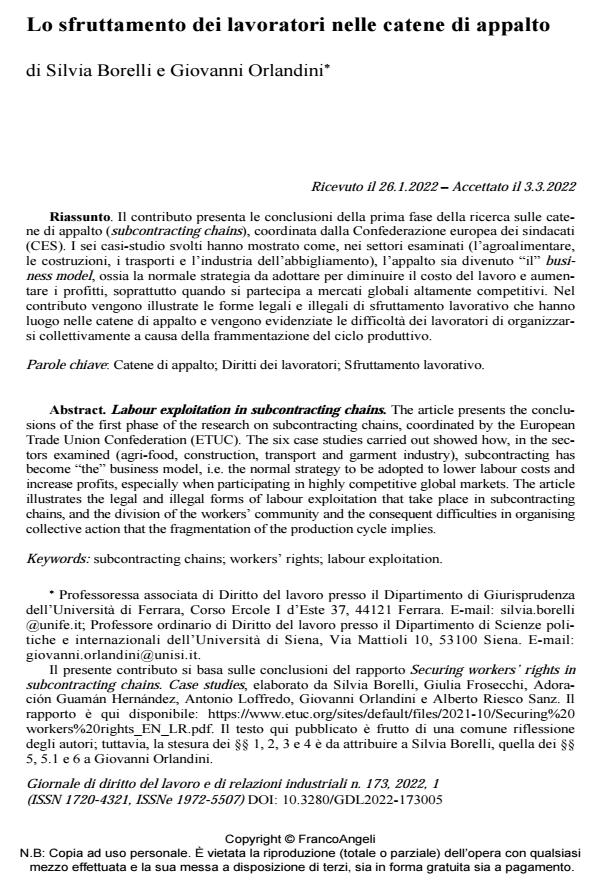Labour exploitation in subcontracting chains
Journal title GIORNALE DI DIRITTO DEL LAVORO E DI RELAZIONI INDUSTRIALI
Author/s Silvia Borelli, Giovanni Orlandini
Publishing Year 2022 Issue 2022/173
Language Italian Pages 25 P. 109-133 File size 296 KB
DOI 10.3280/GDL2022-173005
DOI is like a bar code for intellectual property: to have more infomation
click here
Below, you can see the article first page
If you want to buy this article in PDF format, you can do it, following the instructions to buy download credits

FrancoAngeli is member of Publishers International Linking Association, Inc (PILA), a not-for-profit association which run the CrossRef service enabling links to and from online scholarly content.
The article presents the conclusions of the first phase of the research on subcontracting chains, coordinated by the European Trade Union Confederation (ETUC). The six case studies carried out showed how, in the sectors examined (agri-food, construction, transport and garment in-dustry), subcontracting has become "the" business model, i.e. the normal strategy to be adopted to lower labour costs and increase profits, especially when participating in highly competitive global markets. The article illustrates the legal and illegal forms of labour exploitation that take place in subcontracting chains, and the division of the workers’ community and the con-sequent difficulties in organising collective action that the fragmentation of the production cy-cle implies.
Keywords: subcontracting chains; workers’ rights; labour exploitation.
- Decent work and core labour standards: how to achieve effectiveness? Simona Bilancia, Massimiliano Delfino, Umberto Gargiulo, Francesca Maffei, in Journal of Services Marketing /2025 pp.960
DOI: 10.1108/JSM-03-2025-0188
Silvia Borelli, Giovanni Orlandini, Lo sfruttamento dei lavoratori nelle catene di appalto in "GIORNALE DI DIRITTO DEL LAVORO E DI RELAZIONI INDUSTRIALI " 173/2022, pp 109-133, DOI: 10.3280/GDL2022-173005